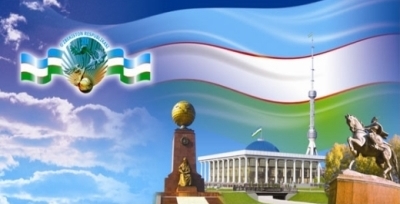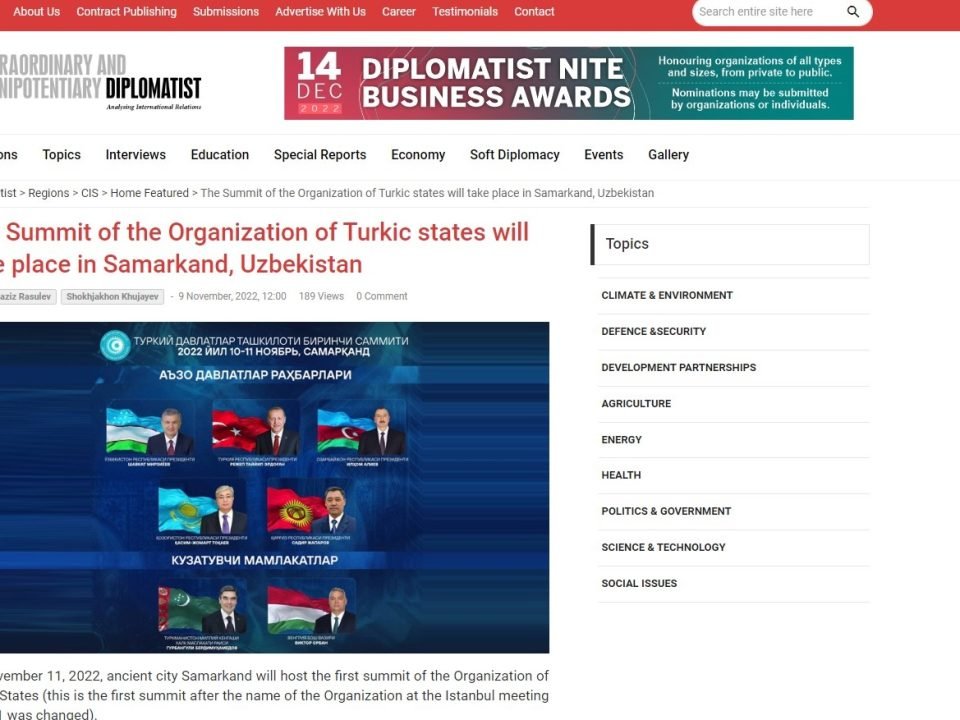At the end of the twelfth plenary session of the Senate of the Oliy Majlis, one of the most important issues discussed was the strengthening of measures to ensure the guaranteed labor rights of citizens in accordance with national legislation and international standards.
The discussion involved scientists, experts, representatives of the agricultural sector, civil society institutions that carry out public control in this area, as well as the International Labor Organization, the World Bank.
Participants of the plenary session came to the regular session of the International Press Club to inform journalists and the public about the essence and significance of decisions on further strengthening the guarantees of labor rights of citizens, preventing the emergence of the risks of forced labor. In particular, the Senate Resolution approved a set of measures to ensure the guaranteed labor rights of citizens in accordance with the laws of Uzbekistan and international standards aimed at increasing the level of mechanization of agriculture, the introduction of new agrotechnologies and modern standards in the sphere, improving the efficiency of the system of organization of seasonal work, qualification of staff, their legal culture, etc.
Uzbekistan, as a member of the ILO, has ratified 14 conventions. International norms are gradually implemented in national legislation. Fundamental social rights, in particular, the generally recognized right to work, free choice of work and fair working conditions are reflected in the Constitution of Uzbekistan, legislation.
“We have a lot of experience in ensuring human rights in the sphere of labor relations,” said Tanzila Narbaeva, Deputy Prime Minister and Chairman of the Women’s Committee of Uzbekistan. – Child and forced labor are completely eradicated. This was largely facilitated by the creation of a reliable legislative framework, the formation of an institutional base, and wide-ranging explanatory work. In order to ensure the coherence of the activities of state, public structures and representative bodies in the provinces to ensure the labor rights of citizens in 2013, the Coordinating Council on Child and Forced Labor was established and effectively operates. We are faced with new tasks, in particular, on the implementation of the Decent Work Agenda, timed to 2020, which also includes the ratification of a number of other ILO Conventions.
As noted, one of the reasons for the emergence of the risks of forced labor and violation of labor legislation in Uzbekistan is the low level of mechanization in agriculture. Taking into account the acreage and yield, the agrarian sector needs 15,000 cotton harvesters.
According to Nodira Otajonova, Deputy Prime Minister and Chairman of the Board of O’zagrotexsanoatxolding, the situation will change dramatically in the near future. Today there are 1,200 cotton harvesters working in the fields. In 2018, farmers will buy about three thousand units. In the current year, investment projects for $ 100 million will be implemented for the reconstruction and modernization of plants, which will significantly increase the capacity of machine-building industries. In this regard, the agenda is to set the varieties of cotton, adapted to machine harvest. The new concept of agriculture assumes an individual approach to crops, development of agrotechnical measures taking into account the reaction to various biological and chemical stimulants.
To strengthen the measures of parliamentary, representative and public control over the implementation of the norms of legislation and international treaties on ensuring the guaranteed labor rights of citizens, including preventing and preventing possible risks of forced labor in any form, the Parliamentary Commission on ensuring guaranteed labor rights of citizens , as well as territorial commissions with representative bodies.
“Carrying out of the study on the ground will help to identify existing problems and shortcomings in the implementation of labor legislation,” says Zayniddin Nizamkhodzhaev, chairman of the Committee on Science, Education, Culture and Sports of the Senate of the Oliy Majlis. – To see what norms do not work, what by-laws need to be improved taking into account international standards. The creation of commissions on the ground will help to identify the problems inherent in specific territories. Our country, reaffirming its determination to continue to fulfill its obligations under international treaties, adherence to ensuring human rights and freedoms and taking strict control of ensuring guaranteed labor rights of citizens in accordance with international standards, is open to constructive international cooperation in this field.
Senior Social Development Specialist of the World Bank, Nina Kolibashkina, assured that the World Bank is ready to provide comprehensive support to Uzbekistan in the formation of a dynamic modern economy with a developed private sector that will create decent jobs for all segments of the population. Modernization of agriculture is one of the key reforms. The transformation of the cotton sector will help to eliminate the risks of forced labor, and the development of the agrarian sector, in particular fruit and vegetable production, and its productivity increase will not only increase revenues in this area, but also create more sustainable jobs. The Coordination Council on Child and Forced Labor is an important matter, and the creation of a parliamentary commission raises this work to a higher level. “Hot lines” of the sectoral ministries and departments, the Federation Council of the trade unions allow real-time solving of many problematic moments in the labor relations.
https://www.sarkaritel.com/labor-relations-realities-and-prospects/


























